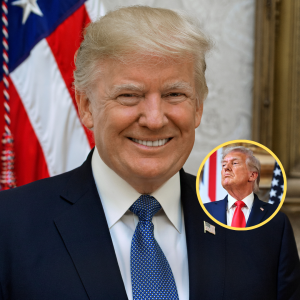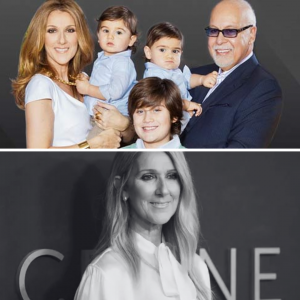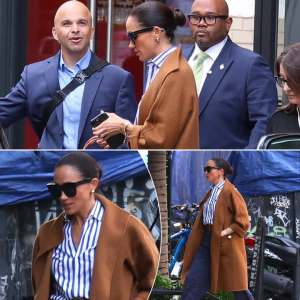A version of this story appeared in CNN’s What Matters newsletter. To get it in your inbox, sign up for free here.
“If we don’t have FREE SPEECH, then we just don’t have a FREE COUNTRY,” then-candidate Donald Trump said in a campaign video.
But less than nine months into his second term, he was explaining his administration’s stance this this way:
“We took the freedom of speech away,” he said at a White House event Wednesday as he tried to explain his call to put people who burn the American flag behind bars for years despite a very clear Supreme Court decision that lists flag burning as free speech.

Trump’s complete turnabout on speech is indicative of the contradictions and ironies in the bedrock principle of the American liberties in the Bill of Rights and the First Amendment.
While Trump came to office promising to restore free speech, particularly on college campuses and on social media, he’s now engaged in a multi-front war over what people can say in the US:
► A Ronald Reagan-appointed judge accused Trump’s administration of a “full-throated assault on the First Amendment” for targeting and deporting pro-Palestinian academics.
► Conservative Supreme Court justices were skeptical at oral arguments over a Colorado law that bans debunked LGBT conversion therapy, suggesting it may step on the free speech rights of therapists.
► Trump wants colleges and universities to clamp down on campus speech in exchange for federal funding.
► He applauded his FCC chairman, Brendan Carr, for trying to get Jimmy Kimmel’s show canceled by ABC, an effort that backfired.
► His lawsuits against media companies and law firms, none of which appear to stand on firm legal ground, have nonetheless been wildly successful in extracting settlement payments and sending a message to firms that would oppose him.
► Companies like YouTube have reinstated accounts or made plans to do so for members of his administration, such as FBI Deputy Director Dan Bongino, who were suspended for spreading misinformation during the pandemic.
► His attorney general, Pam Bondi, promised to go after “hate speech” by people who she perceived as celebrating the death of Charlie Kirk.
The hate speech element is particularly concerning to experts because in recent decades, it has become a tenet of Supreme Court cases and free speech advocates that “hate speech” is such a nebulous term that leaving it unprotected would invite exactly the type of selective viewpoint-policing that the administration now stands accused of.
The hate speech in question was not any obviously repugnant White supremacist or racist ideology, but rather comments related to Kirk’s death, potentially including those who celebrated it. But we don’t really know since Bondi has not been specific.
US history is full of pendulum swings back and forth between freedom and restriction of speech.
The First Amendment, adopted shortly after the Constitution, guarantees Congress shall make no law “abridging the freedom of speech, or of the press.”
But within a few years, Congress passed the Alien and Sedition Acts, which made it a crime to criticize the president, then John Adams, during the undeclared Quasi War between the US and France.
“The sad truth is, free speech has always been a weaponized slogan, right from the outset, when it’s first invented in the early 18th century,” according to Fara Dabhoiwala, a historian at Princeton University and author of the recent book “What is Free Speech? The History of a Dangerous Idea.”
Benjamin Franklin’s grandson Benjamin Franklin Bache was among those arrested for “libeling” Adams under the law. Federalists also threw a Vermont publisher and congressman, Matthew Lyon, in jail for criticizing Adams in print.
(Among other things, Lyon wrote that Adams had “an unbounded thirst for ridiculous pomp,” and, separately, started a fight on the House floor over Adams’ foreign policy. Lyon, attacked with a cane after he spat tobacco juice at a fellow lawmaker, defended himself with fire tongs.)
Far from silencing Lyon, however, the Sedition Act backfired. Lyon ran a successful campaign for Congress from jail. The unpopularity of the clampdown on speech helped lead to Adams’ defeat in the election of 1800.
Another wartime restriction on speech, the Sedition Act of 1918, led to the conviction and sentencing to 10 years in prison of the socialist Eugene Debs for his criticism of the draft during World War I.
The Supreme Court upheld his conviction, but Debs ran a presidential campaign from his jail cell in 1920 and got nearly 1 million votes. President Warren G. Harding later commuted Debs’ sentence.
Courts and people have complex and nuanced views on free speech. Justice Oliver Wendell Holmes wrote the unanimous majority opinion upholding Debs’ conviction, but he also wrote a key dissent in a case involving the conviction of Russian immigrants who distributed leaflets calling for a general strike in the US to interrupt the war effort.
In that 1919 dissent, he espoused what would become a more absolutist view of the benefits of free speech. “The best test of truth is the power of the thought to get itself accepted in the competition of the market,” he wrote.
Free speech and civil rights
In the US, the evolution of speech has also turned on issues of race.
“If you go to the 1830s you would see that abolitionism was brutally suppressed in many Southern states,” according to Jacob Mchangama, executive director at the Future of Free Speech, a think tank at Vanderbilt University and a Senior Fellow with the Foundation for Individual Rights and Expression.
“You would face jail if you spread abolitionist writings, so that was an attempt to try and contain abolitionists in the North from spreading their ideas to the South,” he told me in a phone interview.
Generations later, it was the civil rights movement that helped secure more and more protections for speech.
“The steady expansion of the First Amendment was to a very large extent accomplished by civil rights groups; you had the NAACP and Jewish organizations who were persuaded that adopting laws against group libel, as hate speech was often called, was detrimental to minorities,” Mchangama said.
Those protections have also helped protect the type of hateful speech that civil rights groups would abhor. Thurgood Marshall argued in favor of school desegregation at the Supreme Court as an NAACP lawyer in the Brown v. Board of Education case.
Later, as a Supreme Court justice, he ruled against an Ohio law in favor of KKK member Charles Brandenburg’s right to free speech.
It’s an important distinction between the US and much of the rest of the world, where laws are more likely to restrict speech. Mchangama points to people in European countries who have been jailed over Facebook posts, for instance.
Those cases are why Trump and Vice President JD Vance have both sought to lecture European countries about free speech — lectures that have not aged well as the Trump administration now tries to clamp down on dissent on college campuses and on television, among other places.
Dabhoiwala fears the US is entering a disturbing new period where speech is in danger.
Protections we enjoy today, he said, come out of the Red Scares of the late 1910s and the 1950s, “when government was trying to shut down socialist and communist speech and the speech of homosexuals and the speech of other kind of progressives.”
“And yet what we’re seeing is really a third Red Scare where once again, we have an authoritarian government trying to shut down political voices that it disagrees with,” Dabhoiwala said.
The larger issue may be what Dabhoiwala sees as a major flaw in the First Amendment, which protects speech from the government but is narrowly drawn.
“The government may not censor you, but any private corporation can sack people for putting a bumper sticker on their car or for posting something online, and that’s that,” he said.
To that point, Kimmel was put back on the air not because of a definitive government action, but because ABC’s parent company, Disney, made a business decision.
ABC needs its broadcast licenses, although fewer and fewer people watch TV over the air. Tech companies jealously guard their exemption from liability for what’s posted on their platforms, a relic of telecommunications law that was passed in the 1990s before the Internet was much of a thing. If you’ve heard the term “section 230,” that’s what people are talking about.
“We’re in such a mess because these providers don’t have any legal responsibility to the truth or to the common good, and they are happily monetizing and making giant amounts of profit out of spreading lies and untruths alongside truth and deliberation of a serious kind,” Dabhoiwala said.
Mchangama agrees that untruths can spread quickly online, but he thinks the effects can be blown out of proportion and would be impossible to stop through content moderation.
“If you believe that everyone with an internet connection should be able to participate in the public sphere, then I think it’s impossible to try and combat mis- and disinformation through content moderation, because what constitutes mis- and disinformation is often very difficult to determine,” he said.
Dabhoiwala sees things differently. He wants more out of social media platforms because misinformation spreads quickly, but fact checking takes time.
“The moment we say this is all just the same and free speech, say what you like, you open the door to vast quantities of misinformation, to manipulation by hostile outside actors, by politicians just bullshitting their way to power,” he said.
Mchangama, on the other hand, hopes the American left will look at the Trump administration today and dial back on efforts to control speech.
“Power changes hands,” Mchangama said.
New leaders have new ideas about which groups are worthy of protection, and which should be targeted, which is what we’re seeing right now with Trump.





